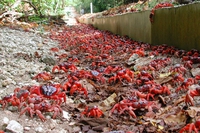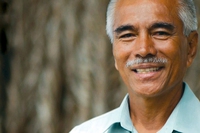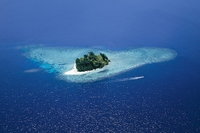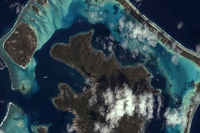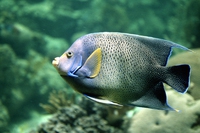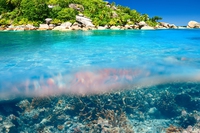
Seychelles, one third of the ocean becomes a marine protected area
Seychelles have extended its marine protected area, which now covers over 400,000 square kilometres, an area larger than Germany.
Seychelles have extended its marine protected area, which now covers over 400,000 square kilometres, an area larger than Germany.
Once a year on Christmas Island something incredible happens: millions of crabs cross the whole island to reach the ocean, where they drop their eggs.
These are the top news stories of 2017 and the people who have most left a mark on a year that has been intense yet also rewarding from the point of view of social and environmental sustainability.
Saving the future of humanity is a feasible challenge according to Anote Tong, former president of Kiribati and now climate activist. Because not only is the future of the Earth’s climate at stake, but so is an entire generation of young people that have done nothing wrong. Take a grandfather’s word.
The island nation of Niue, perched on a coral atoll in the South Pacific Ocean and with a population of around 2,000, has paid off all its national debt, which amounted to 4 million dollars (2,000 per inhabitant). Premier Toke Talagi has declared that Niue will no longer be accepting loans but rather will focus on
The third edition of the international conference Greening the Islands will focus on two major issues: migration and climate change.
Addio al carbone e stop ai sussidi ai combustibili fossili per gli stati isola del Pacifico, ma l’Australia fa resistenza.
For the first time in history scientists have been able to demonstrate the impact of climate change and rising sea levels on small island nations. New evidence shows five islands being swallowed by the sea over the past seven decades. These were part of the Solomon Islands nation, over 1,000 islands in the Southwest Pacific located about 1,600
Yet again small islands are at the forefront when it comes to the impacts of climate change. A recent study claims that these will face more freshwater scarcity than scientists previously thought. Current global climate models (GCMs, mathematical representations of climate used to predict future variables such as surface pressure, wind, temperature, humidity and rainfall) predict
Seychelles is finalising a multi-million dollar debt swap in exchange for its commitment to saving the ocean. The deal was initiated by environmental organisation The Nature Conservancy and the government of the western Indian Ocean nation in 2012. “This is the first example of a debt swap focused on marine conservation and ecosystem-based adaptation to climate
